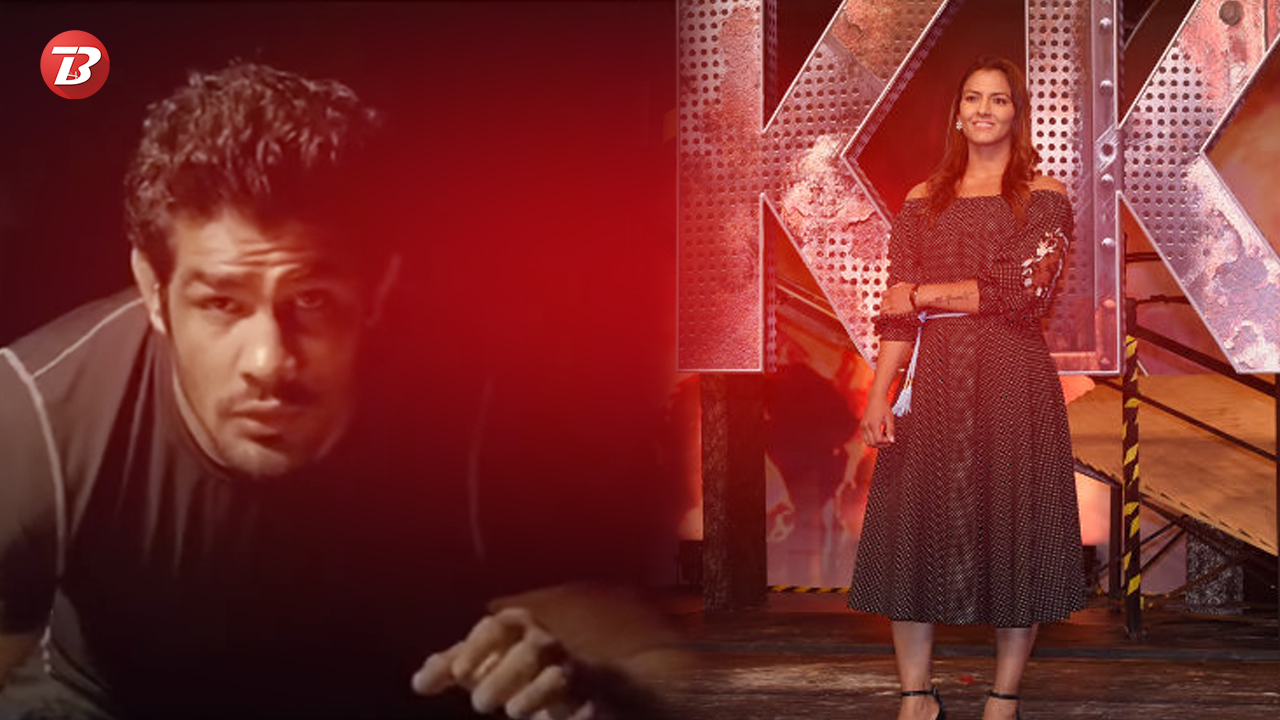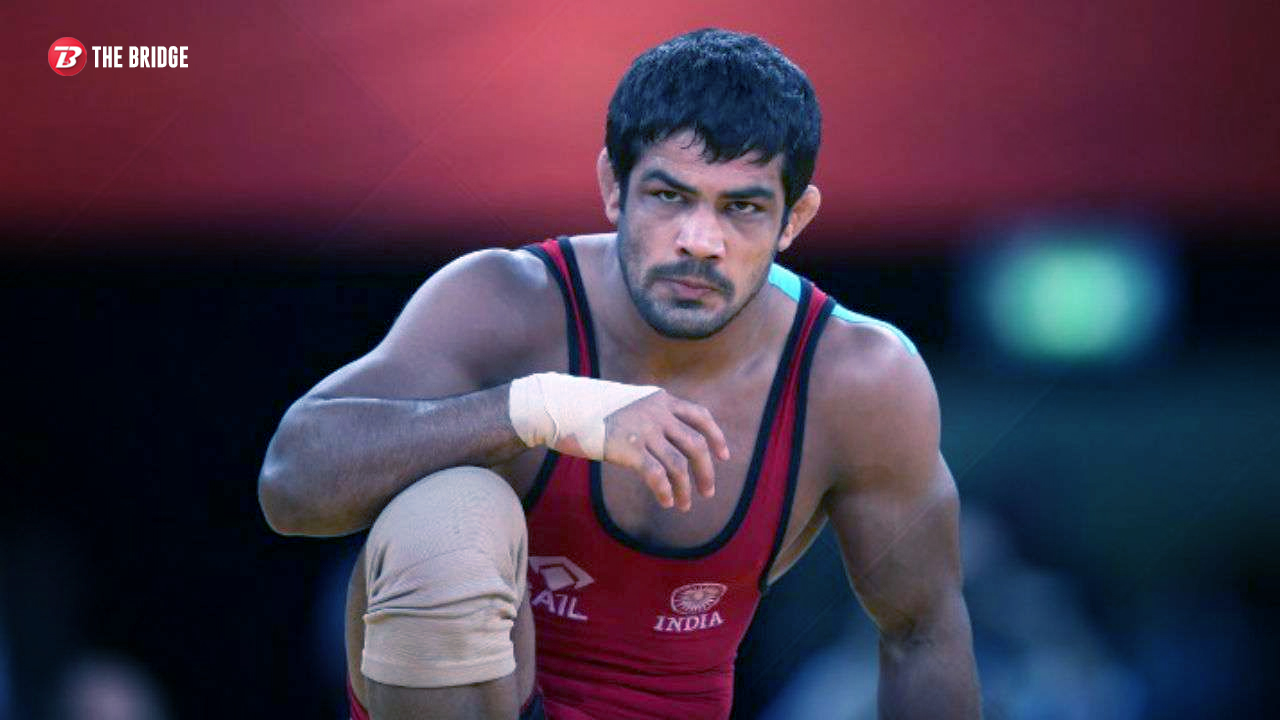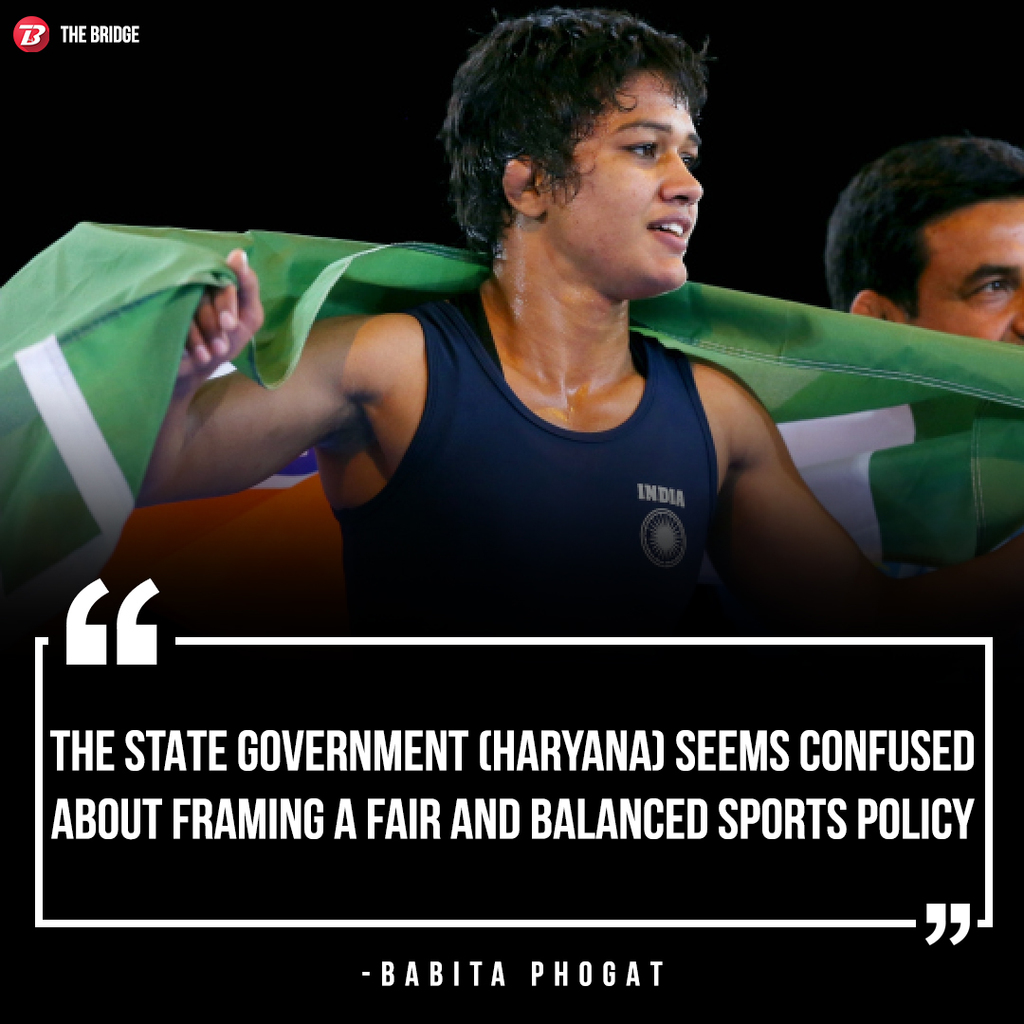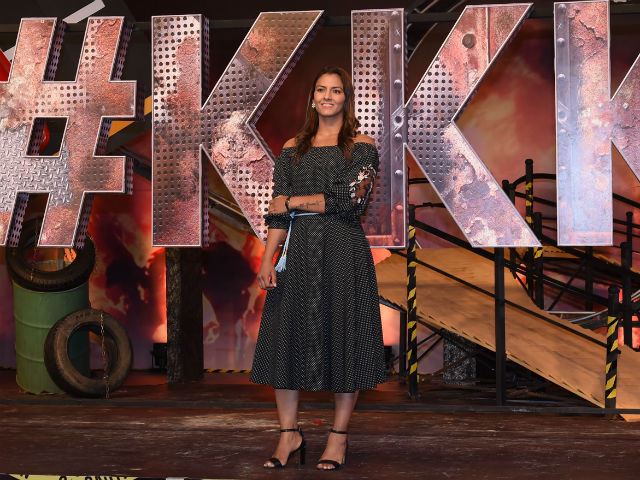Begin typing your search above and press return to search.
Featured
Athletes should give 33% income to sports development: Why the step itself would have been an advanced move by the Haryana Govt.

"Does the Government realise how much of hard work a sports person puts in?" asks an enraged Babita Phogat. "The government should make policies which encourage athletes. I haven't heard of such a policy anywhere else in the world," says two-time Olympic medalist Sushil Kumar. "God save us from such officials, who are taking senseless decisions like this. Their contribution to development of sports in Haryana has been zero but I am sure, they will play a big role in the decline of sports in the state," wrestler Yogeshwar Dutt was quoted as saying. "If the athletes give one-third to the government of whatever they earn then what will remain with the athletes in that case?" quips Geeta Phogat In case you're wondering why these athletes, these athletes who have made a name for themselves by blindly supporting any and every decision the Government has ever taken- in case you're wondering where there is such vehement backlash by these very athletes, the answer is that this is the first time that they will be facing the direct consequences of a government-issued mandate. As per a Gazette dating May 30, the Haryana Government directed the athletes employed under its ranks to submit one-third of their commercial endorsements and professional sport earnings to the development of sports in the State- a state that is unarguably been at the very top when it comes to sending athletes who compete at par at the highest levels. After facing this kind of backlash, the government has now decided to put the mandate on hold.  While it was still valid, he notification predictably got all our elite athletes riled up because, now, it was a question of their personal money which was targeted. From Geeta to Babita to Sushil to Yogeshwar, Harayanvi athletes have commanded the respect of the entire country because of the sheer number of major medals that they have contributed to India's tally over the years. It is no secret that the narrative that surrounds Indian sports often tend to favour the athletes. They are the heroes, they are the stuff legends are made of. So, how dare the Government target them? Why shouldn't India stand united behind these towering figures as they outrage over the wrongs being done to them? Here's why. We'll attempt to answer each and every charge that these very prominent names have put across since the mandate was released and make sense of guideline itself.
While it was still valid, he notification predictably got all our elite athletes riled up because, now, it was a question of their personal money which was targeted. From Geeta to Babita to Sushil to Yogeshwar, Harayanvi athletes have commanded the respect of the entire country because of the sheer number of major medals that they have contributed to India's tally over the years. It is no secret that the narrative that surrounds Indian sports often tend to favour the athletes. They are the heroes, they are the stuff legends are made of. So, how dare the Government target them? Why shouldn't India stand united behind these towering figures as they outrage over the wrongs being done to them? Here's why. We'll attempt to answer each and every charge that these very prominent names have put across since the mandate was released and make sense of guideline itself.  The most significant programs of the state have often run on the motive of making sports a viable career choice for the state's masses. Children are encouraged to take up the field of their choice and a landmark mandate passed by the Haryana Sports Ministry ran on the campaign line "You give us medals and we'll secure your future". This was back when IAS Officer OP Singh was at the helm of things as the Sports Director in the Haryana Government. Additionally, as per the 2016-17 budget of the State Sports Ministry, the Haryana government has spent close to Rs 1.1cr just on mass popularisation of sports. So Babita Phogat insinuating that the Government remains oblivious to the hard work put in by athletes is naive at best. The value of sports has been understood better by no other state in India. This is the reason why the state is where it is. No other state rewards its athletes financially with amounts as high as the Haryana Government does. The state authorities did court controversy earlier in April over the proposition of a cut in prize money for athletes employed with other units like the Railways and Services. This had sparked an outrage among the likes of Vinesh Phogat and Sakshi Malik and the ceremony ended up being called off altogether- much too the dismay of lesser known medalists from the state who could have made good use of the money. So where exactly has the Haryana government failed to understand the value of sports, Babita?
The most significant programs of the state have often run on the motive of making sports a viable career choice for the state's masses. Children are encouraged to take up the field of their choice and a landmark mandate passed by the Haryana Sports Ministry ran on the campaign line "You give us medals and we'll secure your future". This was back when IAS Officer OP Singh was at the helm of things as the Sports Director in the Haryana Government. Additionally, as per the 2016-17 budget of the State Sports Ministry, the Haryana government has spent close to Rs 1.1cr just on mass popularisation of sports. So Babita Phogat insinuating that the Government remains oblivious to the hard work put in by athletes is naive at best. The value of sports has been understood better by no other state in India. This is the reason why the state is where it is. No other state rewards its athletes financially with amounts as high as the Haryana Government does. The state authorities did court controversy earlier in April over the proposition of a cut in prize money for athletes employed with other units like the Railways and Services. This had sparked an outrage among the likes of Vinesh Phogat and Sakshi Malik and the ceremony ended up being called off altogether- much too the dismay of lesser known medalists from the state who could have made good use of the money. So where exactly has the Haryana government failed to understand the value of sports, Babita?  The time taken off for shooting the television series came after the appointment and during the tenure of her duties as the DSP. Fresh from the success of Dangal, it was but natural that brands would be running after the Phogat sisters to rope them in as ambassadors and quite right too. In their heydays, they had done what few women could even dream of. But does that mean they get to take advantage of the system? A salaried and paid leave from the duties she was required to serve in the government plus a hefty earning from the the television series, all done on the taxpayer's money. When you look at it from this perspective, isn't it only right that some money be given back to sports development? Athletes like Geeta Phogat are icons but shouldn't they be sportspersons first? Isn't the entire government support being given to them sanctioned with the agenda that they compete, do their best and win medals while representing India? In the same interview to Mirror Now where Geeta Phogat lashes out at the government, she further goes on to say, "I understand that the rule can still be implemented on the cricketers because there is so much money in that sport. But in other sports like boxing, kabaddi, wrestling, there is not enough money nor are there any endorsements." Absolutely correct. With cricket hogging the limelight, there is little that any sport can do to grab any kind of attention except, maybe, entertain the Indian audience on a regular basis as cricket does. But the government mandate is talking about personal endorsements given to specific athletes who do get endorsements for being known figures. In fact, this is the charge that Haryana's Principle Secretary addressed when he defended the mandate and said, "In any state government or central government, a government employee is not allowed to take part in commercial activities."
The time taken off for shooting the television series came after the appointment and during the tenure of her duties as the DSP. Fresh from the success of Dangal, it was but natural that brands would be running after the Phogat sisters to rope them in as ambassadors and quite right too. In their heydays, they had done what few women could even dream of. But does that mean they get to take advantage of the system? A salaried and paid leave from the duties she was required to serve in the government plus a hefty earning from the the television series, all done on the taxpayer's money. When you look at it from this perspective, isn't it only right that some money be given back to sports development? Athletes like Geeta Phogat are icons but shouldn't they be sportspersons first? Isn't the entire government support being given to them sanctioned with the agenda that they compete, do their best and win medals while representing India? In the same interview to Mirror Now where Geeta Phogat lashes out at the government, she further goes on to say, "I understand that the rule can still be implemented on the cricketers because there is so much money in that sport. But in other sports like boxing, kabaddi, wrestling, there is not enough money nor are there any endorsements." Absolutely correct. With cricket hogging the limelight, there is little that any sport can do to grab any kind of attention except, maybe, entertain the Indian audience on a regular basis as cricket does. But the government mandate is talking about personal endorsements given to specific athletes who do get endorsements for being known figures. In fact, this is the charge that Haryana's Principle Secretary addressed when he defended the mandate and said, "In any state government or central government, a government employee is not allowed to take part in commercial activities."
 While it was still valid, he notification predictably got all our elite athletes riled up because, now, it was a question of their personal money which was targeted. From Geeta to Babita to Sushil to Yogeshwar, Harayanvi athletes have commanded the respect of the entire country because of the sheer number of major medals that they have contributed to India's tally over the years. It is no secret that the narrative that surrounds Indian sports often tend to favour the athletes. They are the heroes, they are the stuff legends are made of. So, how dare the Government target them? Why shouldn't India stand united behind these towering figures as they outrage over the wrongs being done to them? Here's why. We'll attempt to answer each and every charge that these very prominent names have put across since the mandate was released and make sense of guideline itself.
While it was still valid, he notification predictably got all our elite athletes riled up because, now, it was a question of their personal money which was targeted. From Geeta to Babita to Sushil to Yogeshwar, Harayanvi athletes have commanded the respect of the entire country because of the sheer number of major medals that they have contributed to India's tally over the years. It is no secret that the narrative that surrounds Indian sports often tend to favour the athletes. They are the heroes, they are the stuff legends are made of. So, how dare the Government target them? Why shouldn't India stand united behind these towering figures as they outrage over the wrongs being done to them? Here's why. We'll attempt to answer each and every charge that these very prominent names have put across since the mandate was released and make sense of guideline itself. Does the Government realise how much of hard work a sports person puts in: Babita Phogat
It most definitely does. This question does not even need speculation because the results are clearly there for everyone to see. "Haryana, which accounts for merely 2 per cent of the country's land and population, has contributed 33 per cent of the medals won by India at international events," Shashi Tharoor was once quoted as saying at a book launch event. The most significant programs of the state have often run on the motive of making sports a viable career choice for the state's masses. Children are encouraged to take up the field of their choice and a landmark mandate passed by the Haryana Sports Ministry ran on the campaign line "You give us medals and we'll secure your future". This was back when IAS Officer OP Singh was at the helm of things as the Sports Director in the Haryana Government. Additionally, as per the 2016-17 budget of the State Sports Ministry, the Haryana government has spent close to Rs 1.1cr just on mass popularisation of sports. So Babita Phogat insinuating that the Government remains oblivious to the hard work put in by athletes is naive at best. The value of sports has been understood better by no other state in India. This is the reason why the state is where it is. No other state rewards its athletes financially with amounts as high as the Haryana Government does. The state authorities did court controversy earlier in April over the proposition of a cut in prize money for athletes employed with other units like the Railways and Services. This had sparked an outrage among the likes of Vinesh Phogat and Sakshi Malik and the ceremony ended up being called off altogether- much too the dismay of lesser known medalists from the state who could have made good use of the money. So where exactly has the Haryana government failed to understand the value of sports, Babita?
The most significant programs of the state have often run on the motive of making sports a viable career choice for the state's masses. Children are encouraged to take up the field of their choice and a landmark mandate passed by the Haryana Sports Ministry ran on the campaign line "You give us medals and we'll secure your future". This was back when IAS Officer OP Singh was at the helm of things as the Sports Director in the Haryana Government. Additionally, as per the 2016-17 budget of the State Sports Ministry, the Haryana government has spent close to Rs 1.1cr just on mass popularisation of sports. So Babita Phogat insinuating that the Government remains oblivious to the hard work put in by athletes is naive at best. The value of sports has been understood better by no other state in India. This is the reason why the state is where it is. No other state rewards its athletes financially with amounts as high as the Haryana Government does. The state authorities did court controversy earlier in April over the proposition of a cut in prize money for athletes employed with other units like the Railways and Services. This had sparked an outrage among the likes of Vinesh Phogat and Sakshi Malik and the ceremony ended up being called off altogether- much too the dismay of lesser known medalists from the state who could have made good use of the money. So where exactly has the Haryana government failed to understand the value of sports, Babita? "The government should make policies which encourage athletes," Sushil Kumar.
"God save us from such officials, who are taking senseless decisions like this. Their contribution to development of sports in Haryana has been zero," Yogeshwar Dutt.
If the government did not make policies as the veteran wrestler Sushil says, would Haryana even be on the country's sporting map? From grassroots to the elite, from the junior category to the senior, Haryana has always dominated every single sphere in sports like Wrestling and Boxing. In this context, one definitely cannot be sure where the quantifying numeric "zero" comes into the picture."If the athletes give one-third to the government of whatever they earn then what will remain with the athletes," Geeta Phogat.
The problematic aspect of Geeta Phogat's entire assessment of the situation is her use of the term "whatever they earn". It immediately catches the eye and, if that were the case, it would definitely be a step worthy of condemnation by the Haryana government. So, here, it's important that were get our wording of the notification right. "One-third of the income earned by the sportsperson from professional sports or commercial endorsements will be deposited with the Haryana State Sports Council. The money shall be used for the developments of sports in the state." Where does Geeta Phogat fit into the "professional sports or commercial endorsements" clause of the mandate? On October 20, 2016, news emerged of Geeta's appointment to the post of DSP. It was a very welcome announcement as the woman, who had been the pioneer of her sport for the entire country had reportedly waited for six years for this promotion- earlier, she had been an Inspector. On June 2, 2017, Geeta Phogat started shooting for the very popular television show Khatron Ke Khiladi. It was big news back then as she was the highest paid contender on the show earning a reported amount of Rs 4 lakhs per episode. If there is anyone who should be the last person to complain about a lack of endorsements, it should be Geeta Phogat. The time taken off for shooting the television series came after the appointment and during the tenure of her duties as the DSP. Fresh from the success of Dangal, it was but natural that brands would be running after the Phogat sisters to rope them in as ambassadors and quite right too. In their heydays, they had done what few women could even dream of. But does that mean they get to take advantage of the system? A salaried and paid leave from the duties she was required to serve in the government plus a hefty earning from the the television series, all done on the taxpayer's money. When you look at it from this perspective, isn't it only right that some money be given back to sports development? Athletes like Geeta Phogat are icons but shouldn't they be sportspersons first? Isn't the entire government support being given to them sanctioned with the agenda that they compete, do their best and win medals while representing India? In the same interview to Mirror Now where Geeta Phogat lashes out at the government, she further goes on to say, "I understand that the rule can still be implemented on the cricketers because there is so much money in that sport. But in other sports like boxing, kabaddi, wrestling, there is not enough money nor are there any endorsements." Absolutely correct. With cricket hogging the limelight, there is little that any sport can do to grab any kind of attention except, maybe, entertain the Indian audience on a regular basis as cricket does. But the government mandate is talking about personal endorsements given to specific athletes who do get endorsements for being known figures. In fact, this is the charge that Haryana's Principle Secretary addressed when he defended the mandate and said, "In any state government or central government, a government employee is not allowed to take part in commercial activities."
The time taken off for shooting the television series came after the appointment and during the tenure of her duties as the DSP. Fresh from the success of Dangal, it was but natural that brands would be running after the Phogat sisters to rope them in as ambassadors and quite right too. In their heydays, they had done what few women could even dream of. But does that mean they get to take advantage of the system? A salaried and paid leave from the duties she was required to serve in the government plus a hefty earning from the the television series, all done on the taxpayer's money. When you look at it from this perspective, isn't it only right that some money be given back to sports development? Athletes like Geeta Phogat are icons but shouldn't they be sportspersons first? Isn't the entire government support being given to them sanctioned with the agenda that they compete, do their best and win medals while representing India? In the same interview to Mirror Now where Geeta Phogat lashes out at the government, she further goes on to say, "I understand that the rule can still be implemented on the cricketers because there is so much money in that sport. But in other sports like boxing, kabaddi, wrestling, there is not enough money nor are there any endorsements." Absolutely correct. With cricket hogging the limelight, there is little that any sport can do to grab any kind of attention except, maybe, entertain the Indian audience on a regular basis as cricket does. But the government mandate is talking about personal endorsements given to specific athletes who do get endorsements for being known figures. In fact, this is the charge that Haryana's Principle Secretary addressed when he defended the mandate and said, "In any state government or central government, a government employee is not allowed to take part in commercial activities." The consequences
33% of an income, any income, is an extremely high amount. That issue remains beyond question and the outrage of the athletes over the number is quite justified. Maybe to begin with, a lesser number could have been quoted. Furthermore, the term "for the developments of sports in the state" is quite vague and leaves a lot of questions unanswered. It is important to be continuously reminded of the corruption that exists within India's sports system and without a proper method of execution for this extra money, the consequences of this move still remain murky. Until and unless some clarity is given on what the proposed "development" entails, there can be no wholehearted adulation directed towards this proposed move by the state government. An argument could be made that the only reason why athletes turn towards commercial endorsements is the fact that a government paycheck is not enough to sustain them. Given the low literacy rate of the state predominantly made up of farmers, if a sportsperson manages to overcome the socio-economic challenges plaguing them enough to get a high ranking post in the government, he or she is faced with the responsibility of not just taking care of themselves but of the entire family who eventually depend on their earnings. Which is why, maybe, 1/3rd is indeed too much. This does not, however, take away from the fact that this is not the first time that athletes have tried to garner the empathy of the general populace by citing the fact that there is no administrative support which eventually ends up twisting the narrative beyond recognition. The current mandate would have been a welcome one.Next Story






